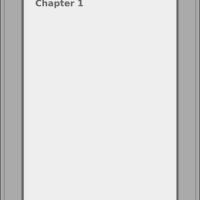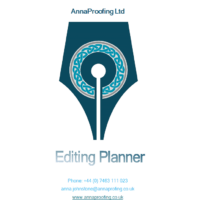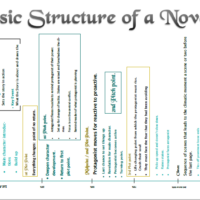
by Anna Johnstone | Feb 7, 2018 | Service
This is just a quick note to all who have received emails from me about account details.
In order to reduce the time I spend managing admin (I would really rather be reading, writing or editing), I am migrating my invoicing system over to my online store to keep it all in one place. The added bonus is that WooCommerce handles the reporting side for me, but…no…No more horrible admin talk! This also means that my clients will automatically be kept updated with offers and other information about the service.

by Anna Johnstone | Nov 28, 2017 | Advice, Blog, Service
A sample edit is an indicator of many things; the professionalism and ability of the editor is only one factor. The sample indicates the level of the work to be undertaken and it allows the editor to asses pricing but did you realise it also shows the editor the level of respect they hold for the skills of the editor?
These did not develop overnight and it is not something that just everyone can do. In the last fourteen months, I have lost count of the number of sample edits I have completed. Some of them took me a whole morning and others took me the best part of a day, depending on the amount of work that needed to be done.
‘But why should authors pay for what they can get for nothing?‘
The reason to pay for samples is two-fold.
First. Refusal to pay for sample edits signal, at least in part, an expectation that editors are automatically obligated to give up their time, and should be grateful for every scrap of attention an author puts their way. Given that this is an attitude that many of us in the creative industries have to explain when companies and individuals want to pay us in ‘exposure’ and think that the satisfaction of completing the work should be its own reward, it saddens me when we have to deal with this from other creatives. The willingness of an author to pay for a sample edit is a clear indication that they acknowledge that your time is as valuable as the skills they want to employ. It says ‘I understand there is a person at the other end of this email who is working hard to make a living, and they deserve to be paid fairly for the work they put in‘. It tells the editor a great deal about the author: remember they are assessing the author every bit as much as the author is evaluating them. Simply put, it’s a matter showing respect between author and editor.
Second. Many service industries charge a call out fee to cover the time it takes them to assess the work in question, and a sample edit is no different. You would not expect a plumber, cleaner, gardener or electrician to come to your home or to give up a morning of their time for nothing. In my view, creative services are no different. The sample fee implies the level of commitment of that potential client. Even web developers charge a consultation fee, This is not to say that editors should not offer free samples if they so wish, only that you should not be put off when editors do charge for their sample edits. By ignoring the editors who don’t offer free samples you could be depriving yourself of an opportunity. What you have found is not a ‘greedy editor‘, but a confident and skilled professional who knows the value of both their skills and their time.
by | Feb 20, 2017 | Blog
Update: 6th March 2017
Sadly, due to lack of takers, this event has had to be cancelled.
A couple of months ago I was kindly invited by another editor if I would be interested in attending a small but intensive writing workshop in Paris. Obviously, I jumped at the chance. It’s Paris! However, this isn’t the only reason I can’t wait to go (no, not the wine. Well, not entirely). What I am really excited about is the opportunity this trip will offer to learn from other writers and editors and improve the service I offer. I will admit I am a bit of a fangirl but with good reason. I have two courses on my Udemy account. Both of them are his and have been hugely helpful. His YouYube channel is another invaluable resource for new writers. The other guests have been carefully selected in order to provide expertise and insight into the writing process. It will provide a face-to-face forum for authors to take part in open discussion, storytelling, exercises and games.
Here’s the really good news: there are still four places left as far as I know. All you have to do is email Harry with the reason you want to be there. The details can be found on Harry’s website. The weekend will stretch from the 25th to the 26th May 2017. Booking will only remain open until the end of February so do hurry. ‘Inspiration and Games’ costs €200 for two nights. If you want to arrive on the 25th (which is what I am doing because the return flights from sunny Luton are a good deal cheaper on the 25th) and spend an extra day in Paris, it’s €225. This covers accommodation, two evening meals and breakfast (excluding the evening of the 25th and breakfast on the 26th).
by | Feb 3, 2017 | Blog, Service
Last Updated: 01, February 2017.
1.Upon receiving your enquiry I will issue an initial Work Unseen Quotation for the services you require. This quote will be itemised according to the services you have requested and it will be valid for one calendar month.
2. If you find this quote acceptable, prior to drawing up a Service Agreement, and during the active period of the quotation, I will do a free sample edit of up to five pages (1250 words) of the work in question. This can be submitted via email but I also use GoogleDrive, Dropbox and OneDrive if you would prefer. This service will appear on your quotation, as standard, and acceptance of the service by no means obligates you to take the process further.
3. If you are happy with the sample edit and would like to take on my services, I will arrange a time when we can discuss an Editing Plan, and the time it will take to complete the work. I will also issue a Final Quotation based on those details. These details will then be formalised in a Service Agreement Contract which we will both sign.
4. The Final Quotation and Service Agreement are specific to one document.
5. If you prefer a hard copy rather than a pdf, please let me know.
6. If you would like to pay in instalments, this must be included within the initial Service Agreement.
- Instalment payment is subject to fulfilment of all of the following conditions:
- A proven track record of prompt payment. This will be in the form of either references from two other editors or a successfully completed contract with AnnaProofing.
- The instalments will apply only to the balance after the deposit has been paid.
- The maximum number of instalments is six, earlier payment is encouraged.
7. The work will also be divided into sections (chapter sets). Each section will commence only when payment has been received. To facilitate this I have accounts with Toggl and Pacemaker, which will enable you to see how much time is being spent on each set, and I and will keep you fully updated as to progress of each stage
- Once the agreement has been signed and returned, and the deposit/payment has been received, I will commence work on your manuscript as per the schedule.
- You have ten working days (Monday to Friday), from receiving the Service Agreement, in which to sign it and return it, after which your Service Agreement will be marked dormant.
- Dormant Service Agreements will be marked as Expired after ten working days (Monday to Friday) of the date on the reminder.
- You have ten working days (Monday to Friday), from signing and returning the service agreement, in which to complete payment, after which your Service Agreement will be marked dormant. You will receive a single reminder. After this time it will be marked as ‘Expired’
8. Expired Service Agreements will not be revived. Negotiation will have to begin again from scratch.
9. Please do not send full documents prior to signing and returning the Service Agreement.
- Submission of the full manuscript prior to the aforementioned stages does not imply any obligation to commence work in any form. If a manuscript is sent without prompting, the following process will be carried out:
- If no Work Unseen Quotation or Final Quotation has been issued I will raise a Final Quotation and Editing Plan based on the document word count and level of service that I believe it needs.
- If a Final Quotation has been issued, but no Service Agreement has been issued/signed, I will either draw it up based on the quotation or send a single reminder to sign and return the Service Agreement and request the deposit.
- If a Service Agreement has been signed, but the deposit/payment has not been received, I will send a single reminder, via email. This will allow you two weeks in which to send the deposit. If the deposit does not arrive within this time your commission will be closed and your manuscript will be returned unchanged.
10. I will commence work once the signed Service Agreement has been returned, and the deposit has been received.
11. I will deal with academic work for assessment at the proofread only level. I accept no responsibility for the final grading of your assignment.
12. AnnaProofing takes no responsibility for any changes made by the client after the return of the finished work.
13. Edited work will be returned to you in the format in which it was edited;
- A word document, with all changes tracked for you to accept or decline as you see fit. You are under no obligation to accept changes but the decision to reject changes does not affect your obligation to abide by the terms of the Service Agreement.
14. All orders of more than ten pages are subject to an upfront deposit of 50% of the quoted price, payable once the service agreement has been signed. Once the commission has been completed, the remainder of the payment will be due within 14 days of the invoice date.
15. Small projects, of ten or fewer pages (up to, but not exceeding 2500 words), are payable upfront and in full.
by | Jan 18, 2017 | Advice, Blog
Last week I talked about unnecessary content and scenes which do not drive your story ahead. This week I am going to continue on that theme because I cannot stress enough the importance of clarity. While a good structure is vital, don’t be in too much of a hurry, or try to race through to the end. Writing is a hike, not a 100-yard dash. Hiking means being able to take in the surroundings, enjoy the autumn colours, spot wildlife, and properly stretch your creative legs. Doing it at a flat-out run means indistinct settings and unclear description. By trying to go too fast, you risk missing out details which help to set the scene. It will not make your reader more alert but lead them to ask the wrong questions about your narrative. In turn, being vague or indistinct means you are leading the readers’ attention away from what they need to know about the story, and missing out on an opportunity to build some depth into your characters through observation of their reactions.
Look at the following examples from K.Weiland’s ‘Most common Mistakes’ post from 2011:
- Maddock looked at the wall, which seemed to be smeared with spaghetti sauce.
- The bomb fell approximately ten or twelve feet away from me.
- Elle was about forty-five minutes late for her dentist appointment when a cop pulled her over, apparently for speeding.
- Mark’s figures revealed that the addition to the house would take up roughly fifty square feet.
Do any of them really help you to set the scene or give the reader a feeling that they need to know this? Nor me. It makes me think this is just filler. Why is the author wasting my time in telling me this? Take out the supposition and the approximation, then we know that the information is important and we will probably need to remember it later. Being unsure of the measurement of the house could prove very expensive, but being definite about it has us asking, why he wants to extend? Is Mark trying to hide something? Is he building a secret den? We know when something comes out flat. It feels trite or contrived; as if it could really be done away with. Being vague has the same effect. If that information is important then the ‘seemed to’, estimations, and approximations need to go. Your author voice will come through the stronger for it.
Sometimes, however, you will need to guide the reader or drop hints about the action or something the main character has observed. There are ways to do this but many of them are wrong. K. Weiland has again offered us a handy list of words to avoid:
- Seem
- Approximately
- About
- Appear
- Look as if
- Roughly
- More or less
- Give or take
- Almost
- Nearly
Persuasive, and evocative descriptions are a vital part of any narrative. Being vague is apologising to the reader for knowing more than they do, or trying to point something out and trying not to sound too clever about it. Stop apologising. Your job is to direct the gaze of your readers. Do not hesitate to give a full sensory experience. In a crime scene, for instance, your main character would be looking for clues. Your reader will be asking what did the air smell of (decay?) or was there a lot of blood or how far the deceased’s head had landed from their body (have someone use a tape measure). ‘Seemed to’ writing will only serve to diminish their experience, as well as rob at least two people of the experience of imagining it. This is not to say that you cannot use metaphor to transmit your meaning, but be cautious. There is the risk that you, as a new writer, will be tempted to hold your reader’s hand and explain them. Don’t. If you have got it right, the reader will understand it. Likewise, if you show your reader what is there, then they will see it.
Sweeping statements and generalisation is another form of dithering to look out for, and eliminate. You don’t need to make sure the reader ‘gets it’. Long winded justifications of your action won’t achieve this either. By going around the houses in order to set the scene you risk boring your audience with the minutiae and they will miss things they are meant to see. It also hints that you are unconvinced by your own story. The message here is to slow down. Be bold enough to say precisely what you mean and what you want your readers to see. Your readers will thank you for it.
Sources















